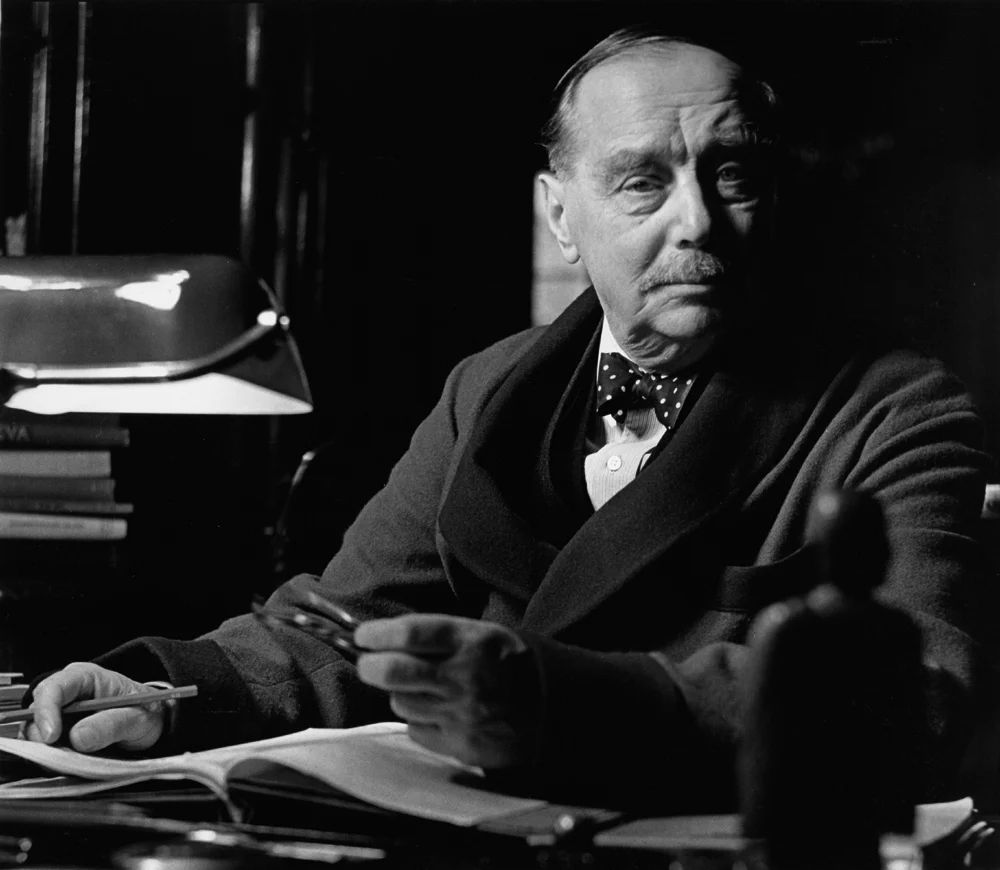Who was H.G. Wells?

Known as the father of science fiction, H.G. Wells was not juts a prolific writer, he was also a visionary who advocated world peace and social equality through his books. Here's a recap of Wells' life and works as another birth anniversary goes by.
The setting of the story is Surrey, Woking in England. It begins with the narrator observing that no one would have thought that our world would be watched keenly by intelligent beings. And that as we busied ourselves with our concerns we were being studied and ‘scrutinized’.
The narrator notes”… perhaps almost as narrowly as a man with a microscope might scrutinise the transient creatures that swarm and multiply in a drop of water…."
The unnamed narrator slowly takes us on a journey of a planetary invasion. What began as flashes of light on the surface of Mars soon turns into a full-blown planetary invasion with 'Martians' landing on Earth. A Martian Invasion!
The War of the Worlds (1898), a science fiction novel by English writer H.G. Wells talks about the extraterrestrial race and the conflict between humans and Martians.
The War of the Worlds is just one among the many works by the author who is considered the father of science fiction.
Early Life
Wells was born in 1866 in Kent, England to parents who were household helps. When Wells was just years old, he broke his leg. During the time he spent recuperating, he started reading. This unfortunate event, in fact, made him an ardent reader.
At the age of 14, Wells was apprenticed to a draper (a dealer in cloth). When he was 17, he started teaching at a grammar school.
When he was 18, he clinched a scholarship at the Normal School of Science in London and studied biology. But he left the college without a degree and started teaching in private schools. It would be years later that he would obtain his degree. He graduated in 1888 and started teaching science. But he turned to writing soon.
Wells as a writer
His penchant for science is seen in the bevy of science fiction he created.
In The Time Machine (1895), the story takes us on a journey of time travel when the narrator invents the time machine.
It would be interesting to note that The Time Machine is the first novel Wells published.
It was not just science fiction he delved into. Wells also wrote about the lower classes. Having had a very humble upbringing, Wells could draw upon his life experiences as well.
He wrote novels about the lives of the lower- and middle-class people and also reflected on the problems of Western society. He also advocated world peace and social equality through his books.
Vocal about social progress
Wells was a socialist. He was actively promoting social progress through his books. This can be seen in A Modern Utopia (1905), where he maintains that science can change the world. He also joined the Fabian Society, a British socialist organization.
Futuristic Wells
Wells has written over 100 books. A visionary, Well's novels are oddly prophetic Reading him would make you wonder how he could foresee so much into our future. But perhaps that's what science fiction is all about. The modern-day inventions of the phone, email, tanks, lasers, gas warfare and so on echo in Well's novels.
But there are a few predictions that haven't come true, such as the invention of the time machine, a Martian invasion, and a man who turns invisible, to cite a few.
A World State
Wells envisioned a world government, which he detailed in A Modern Utopia (1905). He thought that this idea of a world state would ensure peace.
One can surmise that the outbreak of the war made him despondent and dejected. His last book Mind at the End of its Tether (1945) reflects this, with its gloomy future for humankind
He passed away in 1946, in London.
Picture Credit : Google